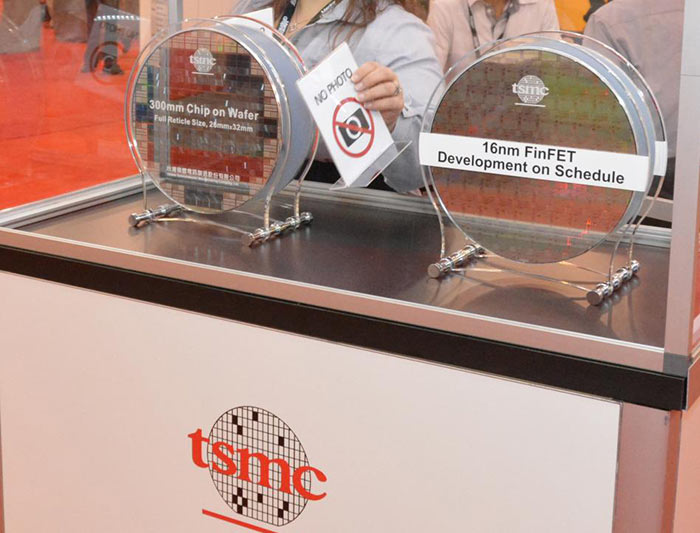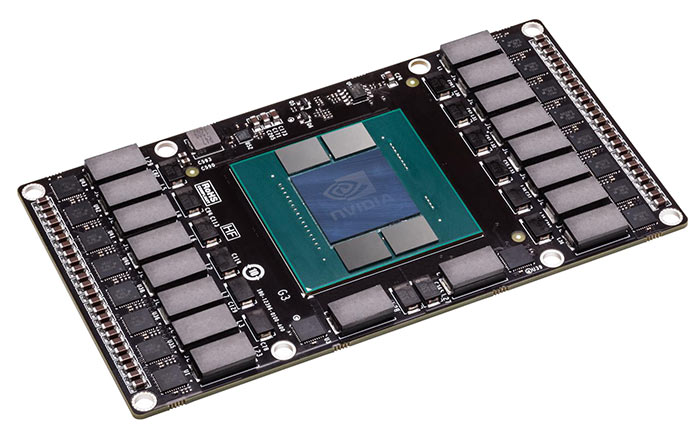TSMC has released a statement saying that its "16nm [chips] smoothly entered volume production as expected". The contract chipmaker was nudged into informing investors about the start of volume production following a report that suggested Apple was cutting its orders with TSMC, and placing bigger orders with Samsung Electronics and GlobalFoundries. Obviously such speculation was playing havoc with TSMC's share price, which had hit a nine month low.

In line with the above news, TSMC is devoting its first production runs to meeting demand for Apple SoCs, reports WCCFTech. There is a long list of other companies waiting to get their wares made on the new 16nm process, these include; Avago, Freescale, LG, MediaTek and Nvidia. AMD wasn't on the (slightly old) list seen by WCCFTech. In 2016 AMD will start to get its Zen micro-architecture CPUs and Arctic Islands GPUs made on a FinFET process but we don't know much more about the practical manufacturing details yet.

TSMC has also announced that it will ramp up "an enhanced version of 16nm chips, or 16 FinFET+ chips, in the third quarter and that production would reach a high volume in the same quarter," reports the Taipei Times. It is this process upon which Nvidia is going to depend for its next-generation GP100 Pascal GPU. Pascal reportedly has 17 billion transistors and up to 32GB of HBM2 based vRAM.

The 16nm FinFET+ node from TSMC is expected to deliver twice the density and 65 per cent higher speed at 70 per cent less power than the current 28HPM process. With things starting to roll at TSMC, we will likely see an announcement by Nvidia in Q1 2016 with Pascal-based products becoming available around Q2 2016.













